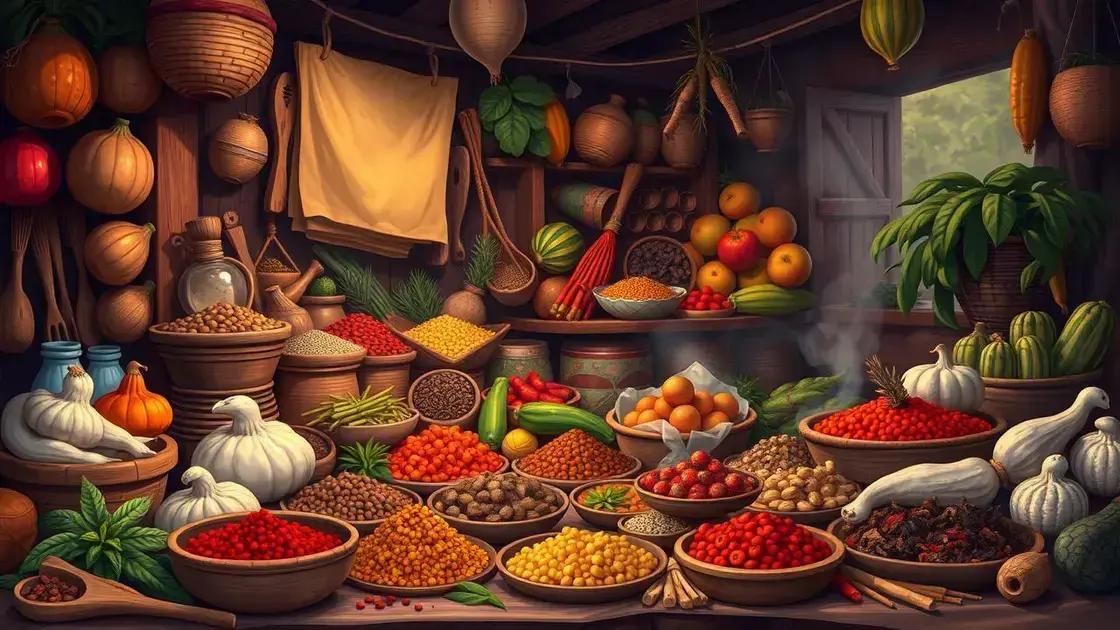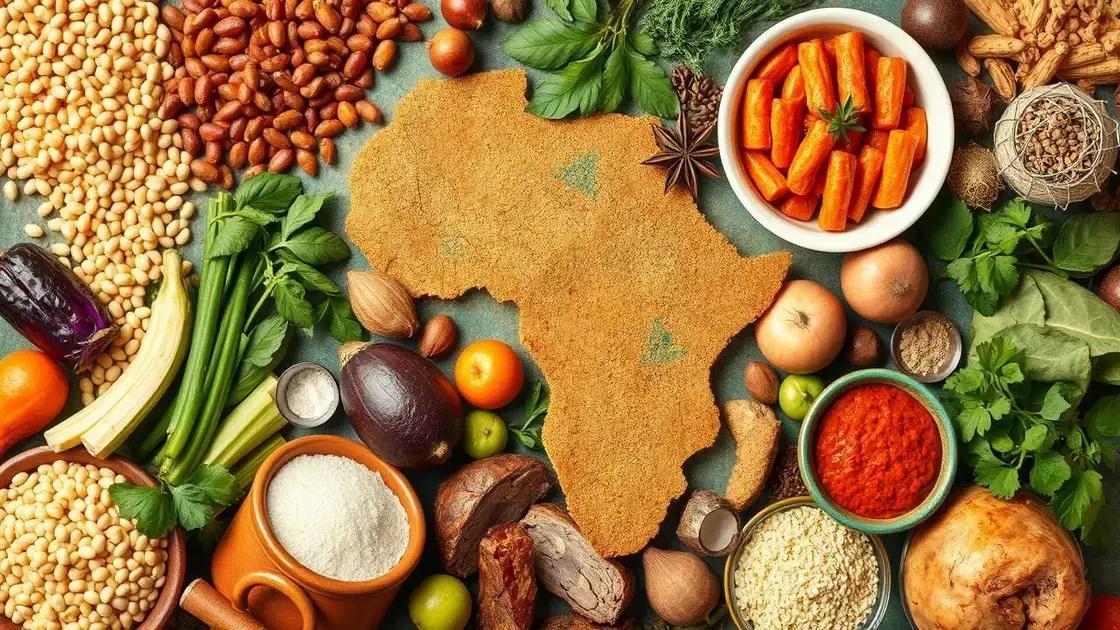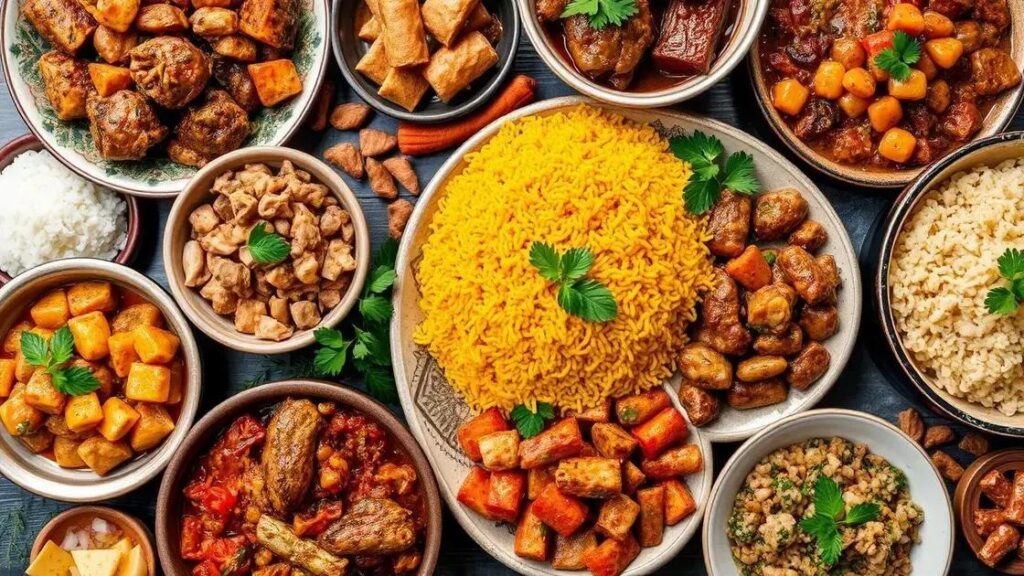The origin of the African recipe is shaped by diverse historical influences, key ingredients like grains and spices, and cultural significance that binds communities. African cuisine reflects rich traditions, with communal meals serving as a centerpiece for social connection, while traditional practices promote health through local ingredients.
What is the origin of the African recipe? This question opens a door to a vibrant world of culinary traditions rooted in history and culture. African cuisine embodies the fusion of various influences, from ancient practices to modern adaptations. In this article, we will delve into the historical influences on African recipes, key ingredients that define the diverse culinary landscape, and the cultural significance that binds these dishes to communities across the continent.
Historical Influences on African Recipes

The history of African recipes is rich and complex, influenced by various cultures and traditions. Ancient civilizations played a significant role in shaping the culinary landscape. For example, the Egyptian civilization contributed ingredients like spices and grains, which were vital to regional cooking.
Colonial Influences
Colonization brought dramatic changes to African cooking. European powers introduced new ingredients such as tomatoes, potatoes, and maize. These elements were integrated into traditional recipes, creating unique fusion dishes that reflect the diverse heritage of the continent.
Trade and Migration
Trade routes across Africa facilitated the exchange of food, spices, and cooking techniques. For centuries, people migrated for trade, intermingling cultures and recipes. This exchange enriched African cuisine, resulting in a culinary tapestry woven from various traditions.
Additionally, the transatlantic slave trade had a profound impact on the origin of African recipes. Enslaved Africans brought their food customs to the Americas, adapting them using available local ingredients. This gave rise to diverse styles of cooking, influencing cuisines across the globe.
Modern Influences
Today, African recipes continue to evolve, blending traditional flavors with new techniques. The modern culinary scene in Africa reflects a resurgence of interest in native ingredients, resulting in innovative dishes that celebrate distinct regional flavors. Chefs are redefining African cuisine, focusing on sustainability and the use of local produce.
Key Ingredients in African Cuisine

Key ingredients in African cuisine reflect the continent’s diversity and cultural heritage. Cereals such as millet, sorghum, and rice form the basis of many traditional dishes. These grains provide essential nutrition and are often used to make staple foods like porridge and flatbreads.
Vegetables and Legumes
Vegetables play a vital role in African cooking. Ingredients like spinach, okra, and cassava are widely used. Legumes such as chickpeas and black-eyed peas are often incorporated into meals, adding protein and flavor.
Spices and Flavorings
Spices are key to celebrating the flavors of African dishes. Cumin, coriander, and ginger are commonly used to enhance the taste of stews and sauces. Chili peppers add heat, while herbs like basil and thyme bring freshness.
Meats and Fish
Meat is a significant part of many African diets. Chicken, goat, and beef are popular, often grilled or stewed. In coastal regions, fresh fish is a staple. Traditional cooking methods like smoking and drying fish preserve flavor and nutrients.
Additionally, fruits such as bananas, mangoes, and oranges provide natural sweetness, often featured in salads or desserts. The combination of ingredients from the land and sea underscores the rich culinary tapestry that defines African cuisine.
Cultural Significance of African Food

African food carries deep cultural significance. It is not just about nourishment; it reflects traditions, history, and community. Meals are often a social event, where families and friends gather to share food and stories. This communal aspect strengthens bonds and fosters unity among communities.
Rituals and Celebrations
In many cultures, specific dishes are prepared for celebrations and rituals. For example, during weddings, traditional meals represent heritage and family. These dishes often tell stories of ancestry and honor cultural practices passed down through generations.
Identity and Heritage
Food is a vital part of cultural identity for many Africans. Each dish tells a story, connecting individuals to their roots and preserving their heritage. By cooking traditional recipes, people maintain their cultural practices and transmit them to younger generations.
Health and Wellness
African cuisine emphasizes the use of local and natural ingredients, which can contribute to better health. Traditional diets often balance various food groups, promoting overall well-being. As people increasingly explore global cuisine, there is a growing appreciation for the health benefits of African foods.
In Summary: The Rich Tapestry of African Cuisine
The exploration of African recipes reveals a rich tapestry of historical influences, key ingredients, and cultural significance. Each dish tells a unique story, showcasing the diverse heritage across the continent.
From the grains and vegetables that form the dietary foundation to the spices that bring dishes to life, African cuisine reflects the resources and traditions of its people. The communal aspect of meals strengthens bonds, while celebrations and rituals highlight the importance of food in cultural identity.
As we appreciate the vibrant flavors of African dishes, we also recognize their role in promoting health and wellness. The preservation of these culinary traditions not only honors the past but also paves the way for future generations to connect with their heritage.
Overall, understanding the origin of African recipes enriches our culinary experiences and fosters a greater appreciation for the culture and history they represent.
FAQ – Frequently Asked Questions about the Origin of African Recipes
What are the main ingredients used in African cuisine?
African cuisine features a variety of ingredients, including grains like millet and rice, vegetables such as okra and cassava, spices like cumin and coriander, and meats like chicken and goat.
How do historical influences shape African recipes?
Historical influences, including trade, colonization, and migration, have integrated diverse ingredients and cooking techniques, creating unique fusion dishes across different regions of Africa.
Why is food culturally significant in Africa?
Food in Africa is a reflection of cultural identity, community bonding, and tradition. Meals are often social events that celebrate heritage and are central to rituals and celebrations.
What role do communal meals play in African culture?
Communal meals are essential in African culture, as they strengthen social bonds, foster community connection, and allow families and friends to come together and share not just food but also stories.
How does African cuisine promote health and wellness?
African cuisine emphasizes the use of fresh, local ingredients, which can lead to balanced diets that prioritize nutrition. Traditional foods often incorporate a mix of grains, vegetables, and proteins.
Are African recipes being adapted in modern cooking?
Yes, many chefs are creatively adapting traditional African recipes by incorporating modern techniques and ingredients while still honoring their cultural roots.













